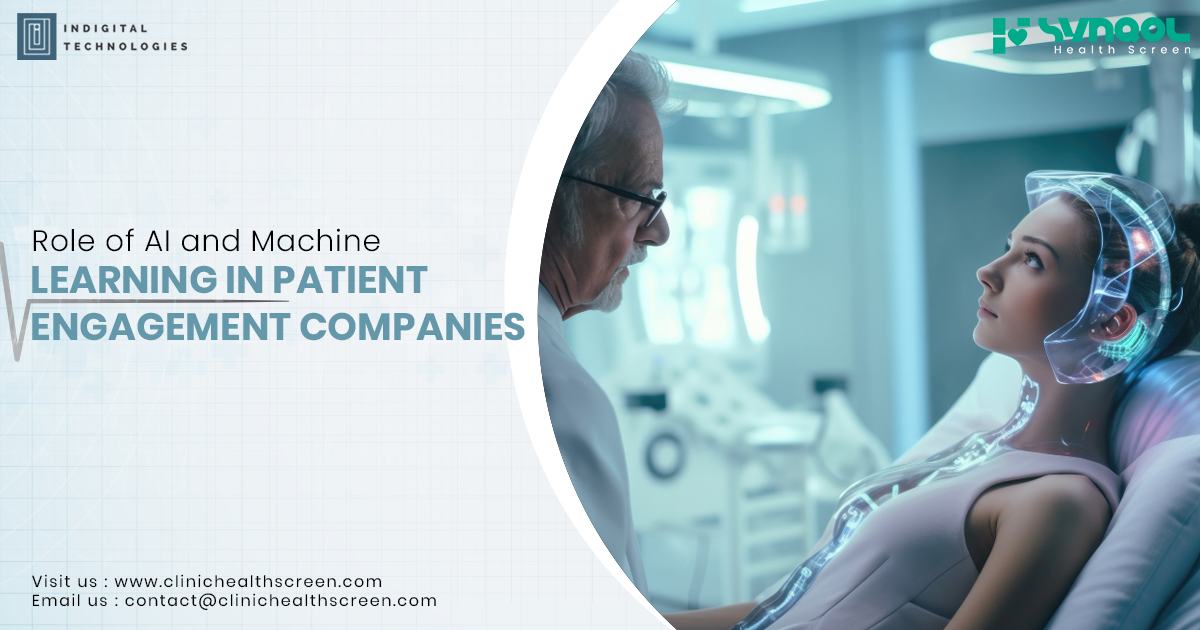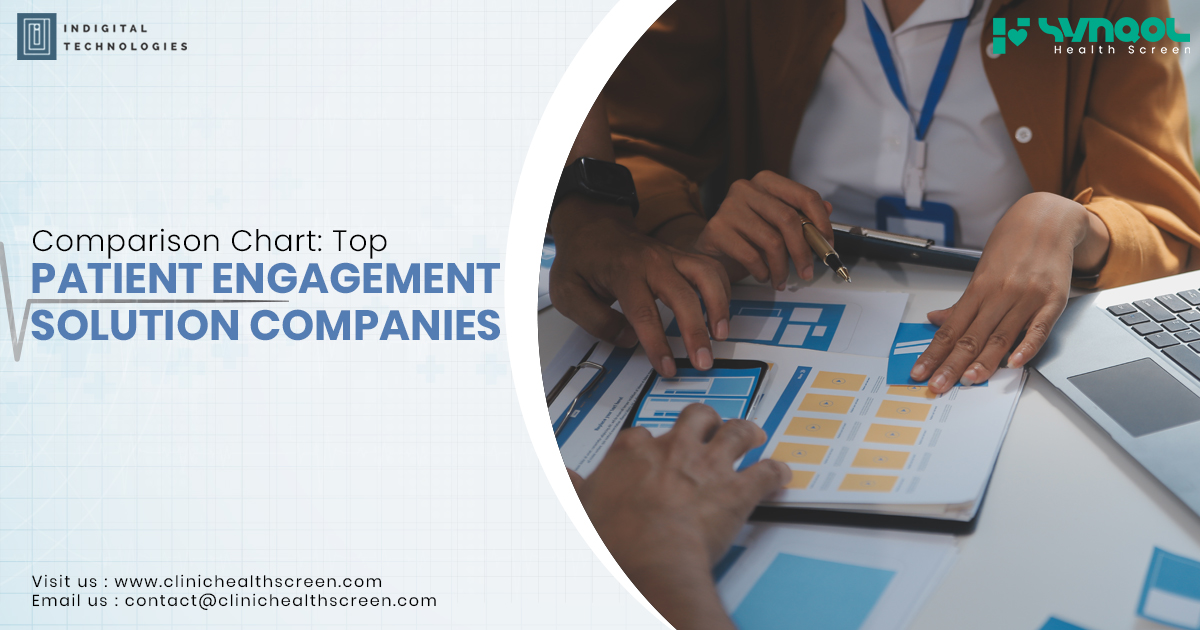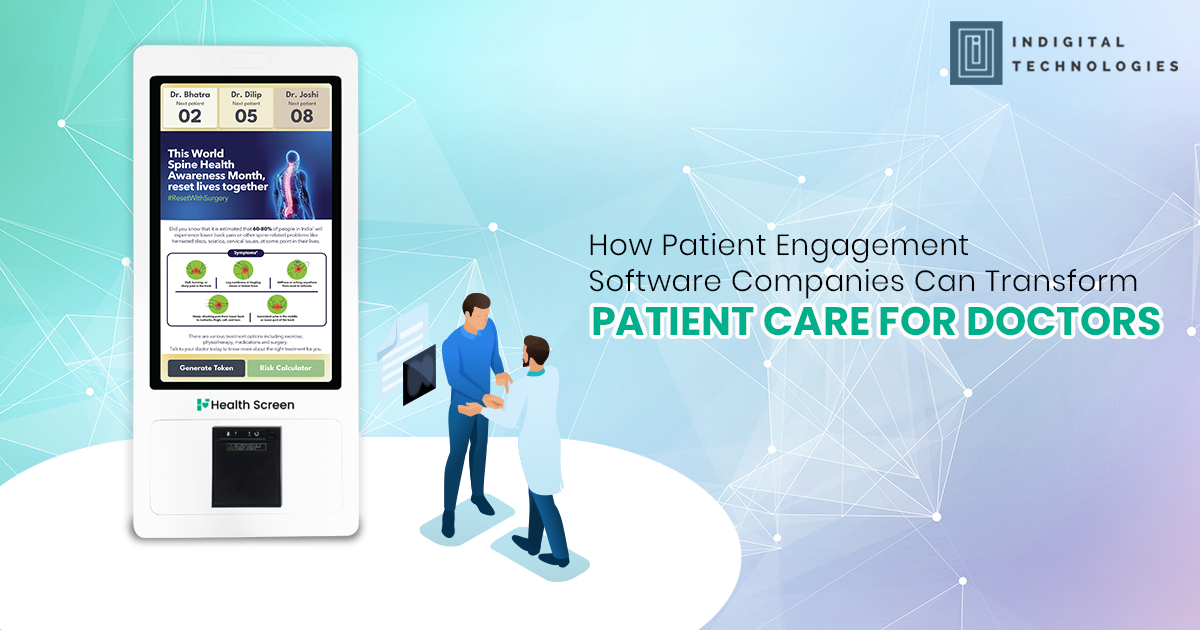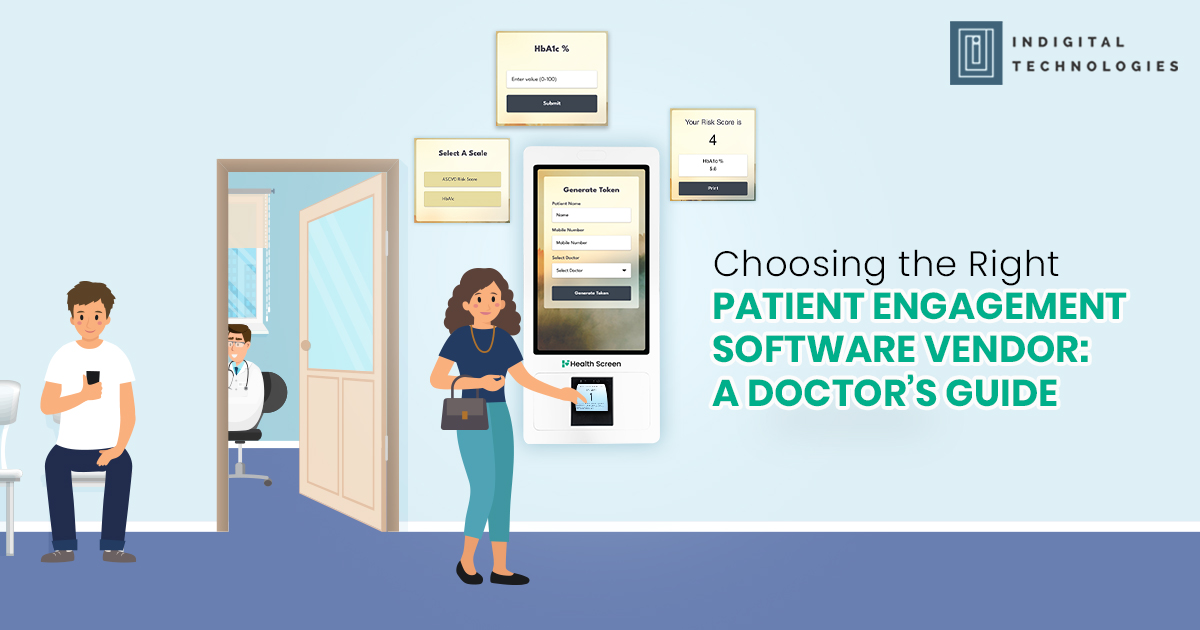The healthcare industry is undergoing a digital revolution, with Artificial Intelligence (AI) and Machine Learning (ML) becoming central to how care is delivered, tracked, and personalized. Among the biggest beneficiaries of this shift are patient engagement companies, who are leveraging AI and ML to deepen communication, improve outcomes, and personalize the patient journey.
For healthcare professionals and pharma managers, understanding this AI-powered transformation is essential—not just for adopting better tools, but for ensuring smarter care delivery.
1. Personalized Patient Education
AI allows platforms to analyze patient profiles, symptoms, and behavioral patterns to deliver customized content. Gone are the days of static posters and generic pamphlets.
For instance, SYNQOL Health Screen by Indigital Technologies uses patient interaction data—such as content viewed, QR codes scanned, and time spent on specific videos—to inform what content should be displayed next. If the majority of patients in a cardiology clinic engage with heart health or BP-related content, SYNQOL can automatically prioritize similar educational playlists.
This kind of smart content delivery ensures higher attention, better comprehension, and improved compliance with doctor instructions.
2. Predictive Insights for Doctors and Brands
Machine learning models analyze patterns in patient interaction to help clinicians and pharma teams make data-driven decisions. This means knowing not just what content was watched—but what impact it had.
SYNQOL provides detailed dashboards showing:
- Most replayed videos
- Peak viewing times
- QR engagement trends
- Content drop-off points
These insights enable doctors to adjust consultation flow and allow pharma managers to refine messaging, choose better visuals, or experiment with formats based on actual behavior—not guesswork.
3. Real-Time Adaptation and Autonomy
AI also makes systems smarter with time. Instead of relying solely on pre-set schedules, engagement screens can autonomously adjust content rotation based on live footfall, clinic specialty, or language preferences of incoming patients.
SYNQOL’s upcoming AI features include adaptive content modes—where the screen changes educational topics dynamically during peak hours or according to the specialty of the next patient in queue. This reduces content fatigue and keeps engagement high.
4. Reducing Workload for Healthcare Staff
AI-powered tools automate redundant tasks. In patient engagement, this means fewer questions at the reception desk, less time spent by doctors on basic education, and fewer follow-up calls due to confusion.
SYNQOL’s intuitive interface allows staff to schedule content weeks in advance, auto-generate survey links, and integrate pharma branding—all without requiring technical expertise. This saves time and enables the medical team to focus on care delivery.
5. Empowering Pharma to Target Effectively
For pharma managers, AI bridges the gap between brand exposure and patient behavior. Instead of relying on rep-driven awareness alone, SYNQOL allows brands to place disease awareness videos directly in clinics and measure the outcome.
With ML algorithms sorting what gets watched, what gets skipped, and what leads to post-view actions (like patients asking their doctor about the topic), brands gain unprecedented clarity on their campaign performance.
Final Thought
AI and ML are not just buzzwords—they’re the backbone of next-gen patient engagement. From personalization to predictive insights and operational efficiency, AI is enabling smarter, more meaningful interactions between patients, providers, and pharma.
SYNQOL Health Screen is at the forefront of this shift, making every second in the clinic smarter, every message more targeted, and every consultation more efficient.





